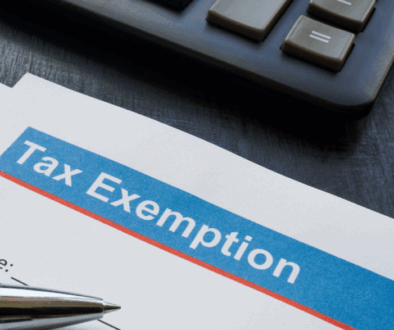DIY vs Hiring a Tax Professional: Which is Best for You?
DIY vs Hiring a Tax Professional: Which is Best for You?
Deciding between tackling your tax return on your own or choosing to hire a tax professional is a significant decision that many individuals face every year. With tax laws frequently changing and the complexity of individual financial situations varying greatly, making the right choice can have a substantial impact on both your financial health and peace of mind. The importance of this decision cannot be understated, as it not only affects the accuracy of your tax return but also your potential savings or liabilities.
This article will explore the various aspects of DIY tax preparation versus hiring a tax professional. It will delve into understanding your tax situation, the benefits of doing your taxes yourself, and the advantages of having a professional handle your tax return. Factors to consider when making your decision, including cost, time investment, and the complexity of your financial situation, will be discussed to help you make an informed choice. By the end of this article, you should have a clearer understanding of which option is best suited for your needs.
Understanding Your Tax Situation
When it comes to navigating the complexities of the tax system, understanding your tax situation is crucial. This involves recognizing the type of tax filer you are and the specific intricacies of your tax circumstances.
Types of Tax Filers
The U.S. tax system distinguishes between “U.S. persons” and “foreign persons” for tax purposes, which directly affects how individuals are taxed. U.S. persons include U.S. citizens, residents, domestic partnerships, and corporations, as well as any estate or trust that meets certain conditions related to U.S. jurisdiction and control. Conversely, foreign persons encompass nonresident aliens, foreign corporations, partnerships, trusts, and estates. This classification is fundamental as it determines the filing obligations and potential benefits or liabilities under U.S. tax law.
Complexity of Tax Situations
Individual tax situations can vary greatly, influencing the approach to filing taxes. For instance, the progressive nature of the U.S. tax system means that individuals are taxed at higher rates as their income increases. Tax rates range from 10% to 37%, and are applied to various types of income including wages, salaries, and dividends, among others. Special considerations may apply based on age, disability, or filing status, which can affect standard deductions and eligibility for additional benefits.
Understanding these elements is essential for anyone preparing their tax return, whether they choose to do it themselves or hire a tax professional. This knowledge aids in making informed decisions that align with one’s financial and personal circumstances, potentially leading to better financial outcomes during tax season.
Potential Benefits of DIY Tax Preparation
One of the primary advantages of DIY tax preparation is the potential for significant cost savings. Hiring a professional tax preparer can be expensive, particularly for those with complex tax situations. By handling taxes independently, individuals can save money and maintain greater control over their finances. This cost-effectiveness is especially beneficial for those who have straightforward tax situations or are on a tight budget.
Cost Savings
DIY tax preparation eliminates the need to pay professional fees, which can sometimes be substantial. This makes it an attractive option for individuals looking to minimize expenses related to tax filing.
Personal Financial Insights
Another benefit of preparing taxes on your own is the deeper understanding of personal finances that it can foster. Throughout the process, individuals gain insights into their income, expenses, and potential deductions. This knowledge is invaluable, as it empowers taxpayers to make more informed decisions about their finances in the future. By being actively involved in the tax preparation process, individuals are better positioned to identify tax-saving opportunities and understand the nuances of tax laws applicable to their circumstances.
Available Assistance and Resources
For those concerned about navigating the complexities of tax filing alone, there are numerous resources and assistance available. Programs like the Volunteer Income Tax Assistance (VITA) and the Tax Counseling for the Elderly (TCE) offer free tax help, particularly beneficial for those who qualify based on income, age, or military service. Additionally, the IRS provides free online tools and resources, such as the IRS Free File program, which can guide individuals through the preparation and filing process if their adjusted gross income is below a certain threshold.
By utilizing these resources, individuals can effectively manage their DIY tax preparation, ensuring they maximize their deductions and credits while complying with tax laws. This approach not only helps in saving costs but also enhances one’s financial literacy and readiness for future fiscal responsibilities.
Potential Benefits of Hiring a Tax Professional
When considering the complexities of tax preparation, hiring a tax professional offers significant advantages. These experts not only save time and reduce the likelihood of mistakes but also provide crucial support in the event of an audit.
Time Savings
Tax professionals streamline the taxing process by efficiently gathering and organizing necessary information, completing forms accurately, and ensuring timely submission. This allows individuals to focus on other important aspects of their lives or businesses, effectively reclaiming valuable time that might otherwise be spent navigating the intricate world of tax codes and deductions.
Expert Advice and Minimal Mistakes
Tax laws are notoriously complex and ever-changing. Professionals remain up-to-date with these changes, ensuring that all available deductions, credits, and incentives are utilized, potentially saving significant amounts of money. Their expertise helps in navigating complex tax scenarios, which greatly reduces the chances of costly errors. For instance, professionals are meticulous in verifying details like Social Security numbers and bank account information for direct deposits, which are common areas for mistakes in DIY tax returns. Moreover, they are well-versed in handling unique tax situations such as inheritance issues, real estate transactions, or small business ownership, providing tailored advice that prevents common pitfalls.
Audit Assistance
Although audits are rare, the presence of a tax professional during such scenarios can be invaluable. They offer representation, respond to IRS inquiries, and guide individuals through the audit process, alleviating stress and enhancing the chances of a favorable outcome. Their experience in dealing with the IRS can provide peace of mind and ensure that one navigates the audit effectively.
By opting to hire a tax professional, individuals gain the advantage of expert advice, minimize the risk of errors, and ensure compliance with the latest tax laws, all while saving personal time and potentially reducing their tax liability.
Factors to Consider When Deciding
Time and Patience
When deciding whether to prepare one’s own tax return or hire a professional, individuals must consider the time commitment involved. The IRS estimates that the average person spends up to seven hours gathering forms and preparing their tax return, with business owners potentially spending around 20 hours. For those who value their time or have other commitments that restrict their availability, outsourcing to a tax professional might be more advantageous, despite the higher cost.
Financial Complexity
The complexity of one’s financial situation is a significant factor to consider. Individuals with straightforward financial scenarios, such as having a single source of income and no dependents, might find DIY tax preparation manageable using free or low-cost tax software. However, those with more complex situations, including multiple income streams, investments, or business operations, face greater challenges. The tax code includes numerous provisions that can affect these individuals differently, making professional assistance beneficial not only for ensuring accuracy but also for optimizing tax liabilities and benefits.
Comfort with Tax Software
Individual comfort level with using tax software also plays a crucial role. Some individuals may feel confident navigating tax software and resolving any issues that arise, which makes DIY tax preparation a viable option. On the other hand, those who are less tech-savvy or anxious about making errors that could lead to audits might prefer the reassurance that comes with professional tax services. Notably, tax professionals use more sophisticated software and possess the expertise to explore additional tax-saving opportunities that standard software might overlook.
Conclusion
In summary, the choice between DIY tax preparation and hiring a tax professional hinges on individual needs, financial complexity, and personal preferences. While self-preparation offers cost savings and valuable financial insights, enlisting a tax professional can save time, reduce errors, and provide indispensable support, especially in complex or high-stake situations. Every taxpayer’s situation is unique, necessitating a thorough evaluation of personal abilities, financial circumstances, and the potential impact on one’s tax liabilities and benefits to make an informed decision.




